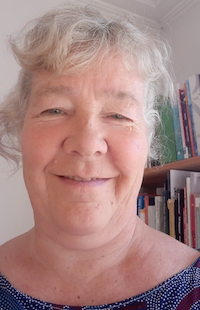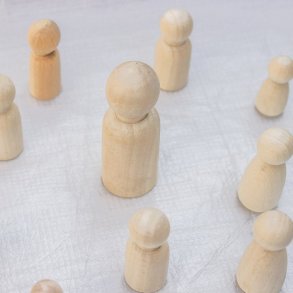By Lise Damkjaer for Enlivening Edge Magazine
There is a lot of talking about creating psychological safe space in the organization and trust enough to dare to speak the truth to the persons with power as Nick Osborne told about at the September First-Thursday Enlivening Edge Community Conversation.
When we want self-organization, we also need to create safe space. When we want collective wisdom to emerge, we need safe space. When we want wholehearted human beings in our organization, we need safe space. We need to navigate in a complex world—and it cannot be done from the brain alone. We need to be connected to our hearts and our being, to navigate—and that again demands safe space. Psychological safe space is a pleasant experience and we want more of it.
But how do we create safe space?
Nick Osborne gave some ideas and referred to matrixleadership.com for more. Thank you Nick!
My experience is that my boardgame ProjectSpace makes it possible for everyone to create safe space.
It is played with up to 5 participants at each table. Everyone chooses which “project” from their life they will work with in this game. One participant throws the dice and the colour shows the cathegory from which she draws a question. The cathegories are:
- Defining objectives and vision
- Planning and Reflecting
- Action and Making things happen
- Improving relations and Evaluating
- Worst case
- In the best of all worlds.
She reads the question aloud and reflects on the question. After a little while she reflects on how to connect the question with her own challenge. The other participants listen and help her with inspiration or questions, but the rule of the game is that the one who drew the question owns her own truth. So everyone is helping her to find her truth.
The questions are weird, in a way, so you don’t know the answer, but have to reflect—and in a way that makes everyone feel a little uncomfortable for the first seconds: “SHIT, I didn’t see that coming”. That’s a part of our training in unforeseen and surprising things in a complex world: take your time or ask the others for help. That’s a good idea for real “SHIT-situations” as well.
Here are some examples of the questions:
- How should the objective be articulated if it truly were to awaken your passion?
- Which is right now the most important strategic question for the project?
- Go with the energy. Where will you go?
- Which purpose does the project fulfill? In 5 years? In 10 years? In 20 years?
- What is your unease trying to tell you?
- What is it that makes something appear magical?
When the one with the question has gotten some meaningful insights from the reflection, the dice are passed on to the next participant. A reflection often takes about 15 minutes, so for 5 participants to draw at least 2 questions each, play goes for about 2 or 3 hours.
My experience with playing is that the depth of the reflection varies from group to group—and that’s good because it means that it is the participants around the table who let the trust and the depth emerge as much as they are prepared for in this specific group.
Everyone opening a little bit more usual makes it easier for the others to open even more. The same person will experience herself being more open or less open in groups with colleagues, with leaders, or with strangers. That depends on the safe space already created, but even when a group seems less open to me, they themselves experience more openness than usual.
The game will continuously create more and more trust and safe space— and mixing the groups after every game will increase the trust in the whole group or organization.
It should not be so difficult to create safe space, I think. Being in a small group and “owning your own truth” is an important help. The weird questions demand reflection and there are no right or wrong answers. Important, too, is taking time to reflect. Not jumping to conclusions is another help.
In speaking about your “own project”, what a project is can be understood in a very broad sense. For instance one of my participants played about planning his own wedding together with an engineer playing about his 100-million-dollar building site project and the latter was very inspired by the way the “wedding-guy” spoke about relations.
I have made another similar game, that you can use for free: The Covid 19 game—mentally surviving the pandemic. It helps create dialogue about thoughts and feelings about the pandemic in your family or in the organization. You can find it at www.learning4life.dk/spilgame. It is in English and in Danish. I also made a game about being human, but it is only in Danish.
If you don’t have access to the game, you can also make your own open questions. Just brainstorm a bunch of them and then draw one and reflect.
Projectspace has been used with more than 1100 employees and leaders, mostly engineers. “If it works for engineers, then it works for all”. After playing, people often tell me that they never thought they would be able to talk like this with these people, whether the people were strangers or colleagues.
Playing the game continuously in your organization creates reflection on your challenges and develops safe space inch by inch as much as the people are ready. You will be surprised how ready people actually are, even if they say they are not. The more safe space we get, the more self-organization, collective wisdom, and wholehearted human beings we get.
 Lise Damkjaer is educated as a civil engineer and has been working with facilitation, process consulting and leadership for about 30 years, mostly in Denmark.
Lise Damkjaer is educated as a civil engineer and has been working with facilitation, process consulting and leadership for about 30 years, mostly in Denmark.
[email protected], +45 29499636, www.projectspacegame.org and www.learning4life.dk
Featured Image Photo by Christina @ wocintechchat.com on Unsplash




